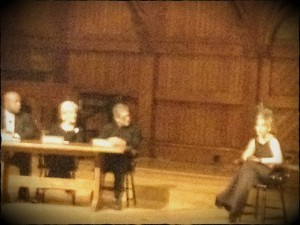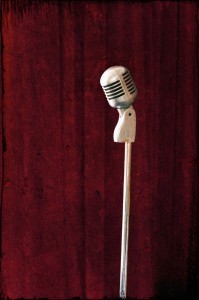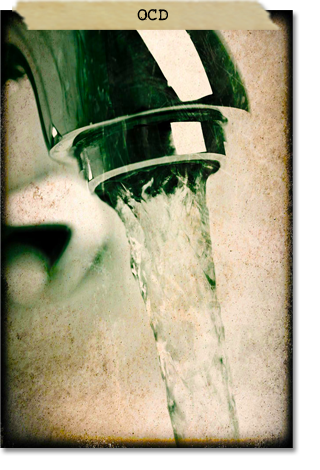Andrea Kayne's Blog
June 19, 2012
Oxford Messed Up: Beyond the Book— Van Morrison
I'm so honored that BookBrowse did this piece based on my characters and my favorite muse, Van Morrison, who I will be seeing in concert June 29th!
Excerpt from BookBrowse: In Andrea Kayne Kaufman's Oxford Messed Up, Rhodes Scholar Gloria Zimmerman (who has Obsessive-Compulsive Disorder) and Henry Young (an underachieving, drug-addicted musician) become unlikely friends when they're forced to share a bathroom in the Oxford University dorms. Over time, these "loo-mates" learn that, despite their differences, they have some things in common - not the least of which is a shared obsession with the music of Van Morrison.
Experience the music that brought Gloria and Henry together. For even more on Van Morrison, visit my community page.

May 4, 2012
Yippee, I won an IPPY!
Best Adult Fiction E-Book Gold Medal: Oxford Messed Up, by Andrea Kayne Kaufman (Grant Place Press)

See the full list of award winners here.
May 2, 2012
Yoga With My Demons and Other Mindful Acts
While there, Diana Chapman Walsh, a leader in the field and an all around incredible woman, said that we “need to stare down our demons of fear and despair”. And so, as I sat rapt to her talk, I thought about them too. Yes, I realize this was a conference all about mindfulness, but mine wandered a bit. Just a bit.

Fear and despair are powerful forces, especially for two people like Gloria and Henry. And, boy, do those forces feed one another. The despair leads to fears that things will never change and the stomach knot of fear drives them to points of despair. They deal with it differently of course. Gloria bottles it up and ties it down, winding herself so tight she might snap. Her OCD relentlessly reminding her she will never be enough, whether clean enough or disciplined enough. Henry wallows in it, sloppy and disengaged. He isn’t ever going to be enough, so why bother at all? Despite the very different way their fear and despair manifest, they both have these demons in equal parts.
And both Gloria and Henry take a long, long time to stare down their demons. Now, readers will remind me that the book covers five months. While, yes, Hollywood is full of marriages that lasted half as long (or less), I’m not suggesting the narrative arch starts with the battle charge and ends with the victory march. The journey towards the stare down starts for both of them long before the book opens. For Gloria, opting to leave her safe, academic world in the states is the first salvo. For Henry, struggling back from addiction shows he’s got a bit of fight in him. Still, each had a life of empowering and feeding their demons before they met. It’s a heavy debt to pay back. And even though they are young, those demons, or as I call them self-saboteurs, had dug in deep.
And here are these two fresh, smart, insightful young people unable to stare those saboteurs down. Whether Oliver or the nagging voice of Henry’s father pushing back on their efforts, these saboteurs are relentless and constantly present, haranguing the main characters about just how messed up they are, just how little they deserve happiness. After they meet, they are convinced of their loomate’s worth, but still not their own. As their friendship matures, they are able and willing to fight each other’s demons but cannot imagine fighting their own. They have faith that whatever cripples and confines the other is completely beatable and no faith about their own battle.
So they’re stuck, right?
Also at the symposia was Jon Kabat-Zinn, the father of mindfulness meditation. My favorite quote from him this weekend was “There’s more right with you than wrong with you as long as you’re breathing.”
That message? That message took me a lot longer than just my early twenties to buy into. But I have. I can now truly say I believe we deserve happiness, that we can cultivate it and love in our lives. That if we love ourselves, and know ourselves and carve out time for ourselves, we are way more right than wrong. It was that belief that led me, in my own trying times, to sit down and write Oxford Messed Up. Because I needed to for my own happiness. So, I bring readers into Gloria and Henry’s lives at the junction when they are going to be able to hear that message: to believe that a person can be really, royally messed up and still be right. Still be loved. Still be happy. I tell their story in the hopes that my extra decade or so (compared to our young lovers) of wisdom, searching, and self-examination helps my readers dissect and see what my characters are going through. And see, hopefully, what is possible in their own lives. I’m a major general now in that fight — the fight that you can choose happiness. And I’m proud as hell that my foot soldiers get it too, eventually. As Gloria is told (but it takes awhile longer for her to hear): “Happiness. Grab on to it. Be defined by it. Choose it.” There is so much more right in us than we realize.
April 29, 2012
Oxford is NOT Gloria and Henry's Kind of Town but that's the Point
Read the full guest post on CMash Loves to Read.
April 11, 2012
I Am A Reader Not A Writer
Read the full interview here
March 26, 2012
Lady Gaga Chained Naked to a Fence And Other Things I Learned About School Law at Harvard
As someone who teaches prospective principals school law, it was both thrilling and terrifying to hear the 25 year old mega star acknowledge but undermine my field so eloquently. Earlier in the day, Harvard Law School Dean Martha Minow similarly told the symposium of experts that school law was limited in combating bullying for when a child came into court their “best interests were long gone.”

Born This Way Foundation president and Lady Gaga’s mother, Cynthia Germanotta, made it clear that she and her daughter wanted me and my fellow experts to really think about advancing the best interests of the children. While the program described our symposium as addressing Youth, Meanness, and Cruelty, our real job was to think about creating a braver kinder world.
But as Dean Minow and Lady Gaga know, our school law paradigm is limited. I don’t know if zero tolerance policies, hate crime prosecutions, money damages, confiscation of computers and smart phones, and other punitive measures get us closer to a braver kinder world. And what about the fact that these legal strategies presuppose and often require harm—sometimes, grievous harm? While there are laws mandating bullying prevention, they are often not enforced or only enforced in haphazard ways unless, of course, something terrible happens. As one student said at the symposium, “The only time educators listen to us is when something tragic happens.”
Lady Gaga made it clear she believes the strategies and solutions to combat and prevent bullying and create a braver kinder world must start with the kids; adults were useless. Lady Gaga disagreed with long time bullying expert and psychologist Dr. Susan Swearer, whose work is much admired by policy makers and researchers. Dr. Swearer was on stage talking about the need for educators to be trained so they could effectively combat bullying.
But Lady Gaga very publicly disagreed. And when she challenged Swearer, she confronted all of us “experts.” At that moment, I felt chained naked to a fence so that I could listen to the wise-beyond-her-years twenty-five year old undermine the efficacy of my field.
“I don’t think that works,” Lady Gaga explained. “I don’t know that teachers even give a shit, some of them ... what I want is for someone like Alyssa [the only youth on stage] to be the person that intervenes.” Lady Gaga went on to explain that this method of educators taking the lead has been in use for too long and isn’t working. As she explained, creating a braver, kinder world is “not going to be the experts or the umbrella above that’s going to change things.”
While the students should play the central role in creating a braver kinder world, Dr. Swears is correct as well. Isn’t she? We adult stakeholders—professors, administrators, teachers, and parents must also provide the safety, skills, and opportunities, the three pillars of the Born This Way Foundation, to support these insightful and yet vulnerable students.
But how? Next week, I start a new quarter teaching school law at the masters and doctoral levels for students who want to be principals and superintendents. Teaching about suspensions, expulsions, zero tolerance, computer policies, and gross negligence will be relatively straightforward-- already in the syllabi. But it’s the braver kinder world that has me stumped. It’s much more important than traditional reactive school law but entirely more difficult. So for the tenth time today, I procrastinate revising my syllabus, listening to my Lady Gaga playlist which is entirely more inspiring than my syllabus at the moment. I look to inspiration from my new favorite school law scholars, Martha Minow, Lady Gaga, and Cynthia Germanotta. We need to reimagine school law so that it empowers youth to be the transformative change agents who create a braver kinder world. If only being chained naked to the fence would work.
March 21, 2012
20 Questions: A Day in the Life of...Andrea Kayne Kaufman
From 20SomethingReads.com: Andrea Kayne Kaufman, author of Oxford Messed Up, shares her daily routine, including the pleasure she gets from embarrassing her kids, the new book she is working on, Parent Over Shoulder, and why sometimes it's okay to make your bed without hospital corners.
What time did you wake up?
I intended to wake up around 7:00 to help get my kids ready for school, but instead hit the snooze button several times. As always, my messiah-like husband got them ready, but don’t I get some points for pulling myself out of bed just in time to embarrass them with an “I love you guys!” from our second floor balcony?
Did you make your bed?
We sleep with a bottom sheet and cozy duvet. Does it count if I only straighten out the duvet? Unlike living with my drill sergeant parents, there are no hospital corners in our house.
Where did you spend your day?
My writing days are highly ritualized. First, a morning walk along Lake Michigan --- always the same path --- nature boardwalk, North Avenue Bridge, North Avenue jetty and south towards Navy Pier. As I walk, I listen to one of several playlists for my current book, PARENT OVER SHOULDER. Each of the main characters has her or his own playlist and most days --- or at least on good writing days --- when I listen to their music, I hear their voices. I then come straight home and speak into my voice recorder, trying to capture what I heard by the lake. The afternoons are spent in my study transcribing, editing, and procrastinating.
Who did you see/call?
I am a professor, so I have what I call “university days” and “writing days.” On university days, I see, call, email, and meet with so many people. On writing days, I mostly commune with the fantasy crew in my head --- at least until my children come home.
How many times did you check Facebook or Twitter?
I’m actually filling this out watching the season finale of Downton Abbey and Facebooking and tweeting about Lady Mary and Cousin Matthew’s engagement (Yay!). I definitely check Facebook and Twitter more on university days than writing days --- have even been caught by the Dean tweeting during a faculty meeting. At least it wasn’t about him…
Did you respond to reader mail?
I love love love reader mail and always respond. Obviously, I enjoy hearing good things about OXFORD MESSED UP, but there have been so many times readers provide insight, context, and nuance that I never noticed or even intended. It’s amazing to learn more about the characters and the world I created; fiction writing is so much more collaborative than I thought. I have also learned more about the subject matter of my book --- whether Sylvia Plath, Van Morrison, OCD, Oxford, or the sex lives of 25 year olds. While I appreciate constructive feedback, I have to be careful not to be too defensive when I disagree or something is wrong. For example, one reader told me she loved the book but that I erred having Gloria’s family live on East Lake Shore Drive because it doesn’t exist --- only North Lake Shore Drive and South Lake Shore Drive. I may have gone overboard tweeting about the location of the Drake Hotel. I might have a bit of Gloria Zimmerman in me…
What did you do on a book project today?
My current book, PARENT OVER SHOULDER, has three sections with three different narrators. It is almost finished, but I am trying to make sure the voices of the narrators are unique, authentic, and consistent. I wrote it out of order in pieces and I’m worried that George’s section is not up to Lizzy’s or Anne’s. I ended up spending most of the afternoon reading George’s narration aloud into a voice recorder. My son came home from school and asked whether I was trying to channel the spirit of a drunken sailor. Not quite. George is a recovering alcoholic.
How did you procrastinate?
I walked around my living room listening to Bob Dylan’s “It Ain’t Me Babe” and Johnny Cash’s “It Ain’t Me Babe.” I told myself it was related to George’s voice, trying to decide if my character would like Johnny Cash’s more boisterous “no, no, no” better than Bob Dylan’s more somber version. Perhaps I was a bit stuck. Music always helps.
What did you accomplish?
I decided George’s recovery confessional narrative sounds a bit clichéd and needs to be more nuanced. Decided to attend another AA meeting for inspiration and authenticity.
What did you want to accomplish?
I wanted to be ready to send my characters into the wider world. My husband thinks I am ready again. But it’s scary to put your work and yourself out there!
What was the weather?
In the years since I moved to Chicago, this has been the mildest winter. My children say it’s the impact of global warming, which does distress me, but it is nice to see Canadian geese in early February.
What were you wearing?
Writing days are very casual. North Face parka, jeans, boots, and a cashmere sweater with a Grateful Dead t-shirt underneath. This is partly because I want to think of myself as a cool rocker and partly because at 46 I am starting to have hot flashes and need layers.
What did you read?
I have been consuming Jonathan Franzen’s novel FREEDOM. I especially love his twist in narration when one of his three main characters, Patty, narrates through an autobiography, entitled “Mistakes Were Made”, which she was encouraged to write for her therapy. Patty’s voice, as a biased unreliable narrator, is a brilliant device for not only pushing the story forward, but also revealing the blind spots and limitations of her perspective and understanding. For me, understanding who she is as a person is more important than understanding what happens to her.
Did you listen to music, if so what?
PARENT OVER SHOULDER playlist for George: “After the Gold Rush” by Neil Young; “Don’t Be Shy” by Cat Stevens; “It Ain’t Me Babe” by Johnny Cash; “It Ain’t Me Babe” by Bob Dylan; “More Than This” by Roxy Music; “Good Riddance” by Green Day; “You Are a Tourist” by Death Cab for Cutie; and “Hey You” by Pink Floyd.
What was the healthiest and unhealthiest thing you ate?
Over-priced “much-ado-about-mango” fruit snacks from Starbucks. Three venti lattes from Starbucks. I don’t want to know what the phrase for 60 ounces is in Italian.
Did you exercise?
On my writing days, I walk about 5 miles or so. I also do pilates and weight training every week. However, I have gone through some bouts of physical therapy with rotator cuff and back issues.
What was the best part of the day?
Hearing my character on the North Avenue jetty struggle with a difficult shameful secret.
What was the worst part of the day?
Hearing my character on the North Avenue jetty struggle with a difficult shameful secret and wondering how he could forgive himself. I had to find a bench and sit down with George’s pain. He desperately wanted a drink.
Any surprises today?
Writing days are always full of surprises if they are good writing days. I really feel like I capture more than I create and you never know what you’ll find.
What device did you use to answer these questions?
I am an Apple addict. I used a combo of Mac desktop and MacBook Air. I love my iPad but have a hard time doing heavy-duty writing on it. I feel guilty about reading so many books on my iPad but it’s just so damn convenient and I do have rotator cuff issues…
See the post here: 20SomethingReads.com
November 16, 2011
Oxford Messed Up endorsed by OCD Chicago
For immediate release
Contact Ellen Sawyer, Executive Director
773-880-1635
esawyer@ocdchicago.org
www.ocdchicago.org
OCD Chicago Joins Oxford Messed Up Book Launch
Summary: OCD Chicago founder and honorary chair Susan Richman endorsed Andrea Kayne Kaufman’s new book, Oxford Messed Up, a compelling love story about an individual with Obsessive Compulsive Disorder that will be published on November 17, 2011.
Chicago, IL (PRWEB) November 15, 2011—Susan Richman and OCD Chicago president Jeanne Ettelson will attend the publication launch party. Oxford Messed Up is the story of a couple’s journey from sickness to health and from fear to freedom. Oxford Messed Up will be available in hardcover, paperback, Kindle, iBooks and Nook editions.
Author Andrea Kayne Kaufman is a professor and attorney who earned a bachelor’s degree from Vassar College, a master’s degree in Education from Harvard University and her Juris Doctor from the University of Pennsylvania Law School. Oxford Messed Up, her first novel, promises to transport readers on a meaningful and emotional journey, where the academic world of Oxford is a backdrop for true learning, self-discovery, and transcendent love. The novel is research-based, and has been vetted by OCD experts, including OCD Chicago’s founder Susan Richman, who say it is one of the first novels to present the inner workings and treatment of Obsessive Compulsive Disorder accurately. Most depictions in fiction, television, and movies focus on OCD’s eccentric behavior and ignore the internal torture.
Praising Oxford Messed Up, Susan Richman stated, “Finally, a story that shows how powerful Cognitive Behavior Therapy really is, and a protagonist who is so much more than her OCD… This book accurately and finally portrays the recovery that is possible when OCD is treated correctly. Thank you, Andrea Kayne Kaufman, on behalf of all of us who struggle with anxiety, and on behalf of all of us searching for healing, growth and a beautiful love story!”
Susan A. Richman, J.D., the founder, past president and honorary chair of OCD Chicago, developed OCD very suddenly and severely at the age of 28 and could neither work nor live on her own during the three years in which she received ineffective treatment. She recovered after three weeks of exposure and response prevention therapy. Ms. Richman founded OCD Chicago so that others could learn about and access effective treatment without wasting years of their lives. Ms. Richman was graduated first in her class from Northwestern University with a degree in economics and was elected to Phi Beta Kappa Honor Society. She received her law degree from the University of California Hastings College of the Law, where she was elected to the Order of the Coif. She has practiced real estate law in Chicago and currently works in farm and ranch management.
Obsessive Compulsive Disorder (OCD) is the fourth most common psychiatric diagnosis, after phobias, substance abuse and major depression. The World Health Organization, the World Bank and Harvard University ranked OCD among the 10 leading causes of disability worldwide. It equally affects adults and children of all races, religions and socioeconomic backgrounds.
OCD Chicago, the leading provider of consumer resources to help sufferers cope with and conquer OCD, supports the informational and emotional needs of people with OCD, their families, educators, clergy, and the mental health professionals who treat them.
For more information on OCD Chicago or Obsessive Compulsive Disorder, visit www.ocdchicago.org. On its web site, the organization offers detailed facts about OCD, resources, expert perspectives, personal stories from individuals with OCD, and free, downloadable OCD Guides in English and Spanish for all age groups. People can also call OCD Chicago at 773-880-1635 to speak with someone knowledgeable about Obsessive Compulsive Disorder.
###
November 10, 2011
"That's so OCD" and other phrases we loathe...
One of the taboo phrases in our house is “That’s so OCD.” We hear it so much in schools, offices, and other public spaces. It’s become part of our common parlance—when someone checks several times to make sure the car door is locked, when someone washes their hands religiously before and after every meal, and when someone is generally too nit-picky or anal. But OCD is more than a phrase or an insult, it is a disorder we think we know because we see it in film and television. Jack Nicholson in “As Good as it Gets;” Tony Shalhoub in “Monk;” and Jayma Mays in “Glee”. While Hollywood may have good intentions, it often focuses on the quirky behaviors (compulsions) OCD causes without addressing the real internal torture and obsessions that a person with OCD experiences.
It is difficult to really understand this internal torture unless you’ve experienced it first hand. Unfortunately, it is something my family knows all too well. One of my loved ones had always been picky and precise. We noticed it getting much worse, and eventually a chain of life-altering events ignited the long-latent OCD. The psychologist described the OCD as “conflagration” and we watched the disease consume one of our dearest family members, making it nearly impossible for this loved one to enjoy life.
The psychologist and psychiatrist informed us that if there was a chance of recovering from the OCD, it would have to be through the combination of Cognitive Behavior Therapy (CBT) and medication. Both of these options seemed frightening, but it was more frightening watching the deterioration of someone so dear to us. Cognitive Behavior Therapy with its rigid “tough love” system of rewards and punishments seemed so archaic, but it was…and still is…the only therapy that has been proven successful in treating OCD. It is also called ERP which stands for Exposure and Response Therapy. We learned the hard way that OCD was not funny at all; it was internal torture. For the sufferer of OCD, it is as if there is an internal voice that compels destructive behaviors based on irrational obsessions to alleviate intense anxiety. The person with OCD knows these obsessions and compulsions are irrational but is gripped by the internal voice and its illusory promise of relief.

It requires exposing the person with OCD to what they are most anxious about so that they can prove to themselves and their internal OCD voice that they can tolerate the anxiety and that their fallacious assumption that world is coming to an end is not true. Thus for the OCD who is checker and cannot leave the house because she is afraid she left the burners on, she will have to gradually be forced to leave her house with the burners on. The OCD germaphobe may be forced to eat food from the floor.
CBT/ ERP is very painful for the person with OCD, forcing them to confront what they are most afraid of and what gives them short-term comfort (although like most addictions, it never lasts and they always need more). CBT/ ERP, however, is the only proven treatment that works and it can be more effective if coupled with medication. Our loved one got the help they needed and within just a few months the condition was dramatically improved. Everyone called it a miracle, but for the OCD community, it was a matter of course. Even though the results of CBT are so incredible, it is hard to see it through.
In addition to my wonderful husband and family, the main person who got me through was Gloria. Thank God for Gloria. She was born on the shores of Lake Michigan, where I would escape every morning to walk by the lake as I listened to Van Morrison and occasionally some Bob Dylan. Gloria’s name came from one of Van Morrison’s most famous songs, “Gloria” (performed prior to his solo career with his 1960s band, Them), and Zimmerman is a reference to the last name Bob Dylan was born with. She was a 22-year-old young woman with untreated OCD. In my mind, she helped me understand what my family was going through. She consoled me.
I have written a fiction account of Gloria, giving her the same happy ending we had. I was fortunate enough to get a New York agent on my first try. Publishers were very enthusiastic about the writing but they did not believe the depiction of OCD even though my book had been vetted by several prominent experts and lauded as “the first true depiction of OCD in fiction.” But it was so important that people really understand the internal torture of OCD and how it can be treated effectively so my husband and I formed our own independent Grant Place Press. The book has received rave reviews and there were will be several articles in prominent magazines.
Our society’s superficial understanding of OCD disregards the internal torture that people with OCD struggle with every day. They think they know OCD, judging friends and family and laughing at their ridiculous anal behavior. That’s so not OCD.
November 8, 2011
My Midlife Scavenger Hunt: Demons and Muses
I met Gloria Zimmerman, the protagonist in my novel Oxford Messed Up, during my year from hell—a year when my family, career, and sanity were severely tested. At DePaul University, where I’m on faculty, it was a prolonged nine months of insecurity and uncertainty as colleagues from my department, college, and university meticulously scrutinized my teaching, scholarship, and service, deciding whether I was worthy of tenure and promotion. While my record was solid, I was worried about the subtext underlying my dossier—the toes I may have stepped on, the asses I refused to kiss, and the students who sometimes found my school-law classes challenging.
As it turned out, fighting for tenure was not nearly as difficult as the fighting I would have to do at home. Almost overnight, we had to deal with severe Obsessive-Compulsive Disorder in our family. The psychologist described the OCD as “conflagration” as we watched the disease consume my loved one, severely undermining the ability to talk, to eat, to move, and to relate to peers in any way.

The psychologist and psychiatrist informed me that if there was a chance of the person in my life recovering from the OCD, it would have to be through the combination of Cognitive Behavior Therapy and medication. Both of these options seemed frightening, but it was more frightening watching the deterioration. Cognitive Behavior Therapy with its rigid “tough love” system of rewards and punishments seemed so archaic, but it was…and still is…the only therapy that has been proven successful in treating OCD.
So there I was in the Fall of 2007, justifying my academic record by day and justifying the painful limitations I had to place on someone I deeply loved by night. The only one who got me through was Gloria. Thank God for Gloria...
Read the rest of this entry here and please feel free to leave a comment or story of your own midlife scavenger hunt adventures: My Midlife Scavenger Hunt: Demons and Muses



